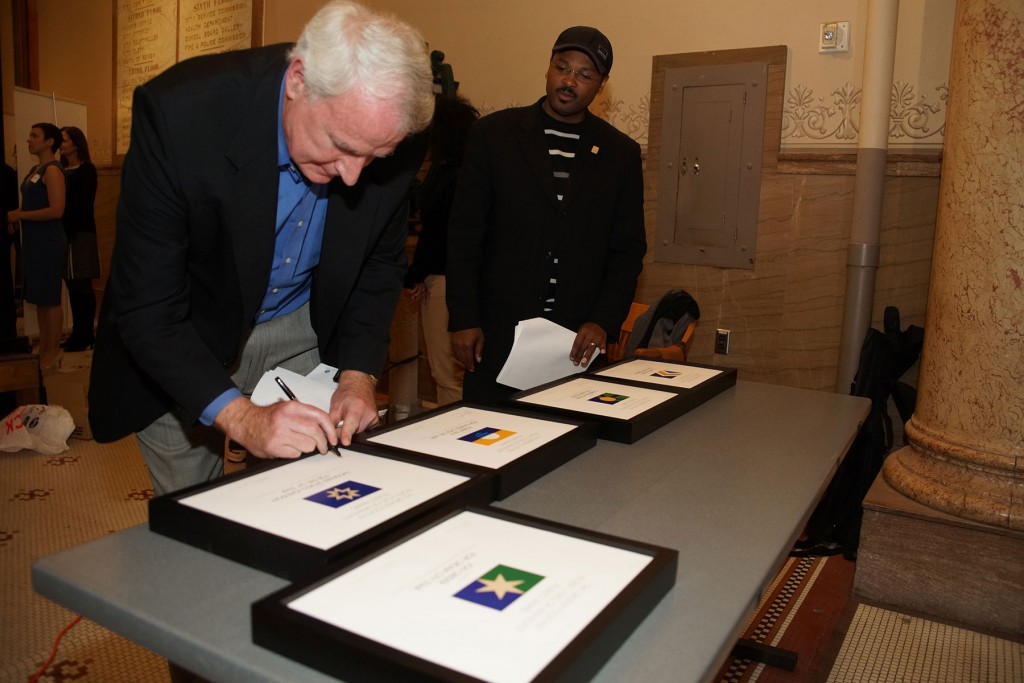
The City of Milwaukee Common Council approved two resolutions on November 26, for the creation of an Office of Veterans’ Affairs and a Millennial Task Force focused on issues for the city’s under 40 workforce.
The full Common Council approved an ordinance creating an Office of Veterans’ Affairs in the City of Milwaukee. The legislation was authored by Alderwoman Chantia Lewis, and makes Milwaukee the 8th city nationally with such an office. Alderwoman Lewis, an Air Force Veteran, believes an Office of Veterans’ Affairs would be of great value to the city.
“The City of Milwaukee is certainly veteran friendly, but we can do better. There is a need when it comes to disseminating information and providing access to programs, and I believe this office can help tackle those key issues and much more. Over time, I think this office can be a one stop shop for veterans and help supplement offerings provided by Milwaukee County,” said Alderwoman Lewis.
The Office of Veterans’ Affairs would be responsible for the administration, coordination and implementation of the city’s policies relating to the special needs of the city’s military veteran residents, their families and caregivers, and would be staffed by an executive director. The executive director would serve as a liaison and facilitate partnerships between Milwaukee, state and federal agencies, and public- and private-sector organizations to improve access to available resources and opportunities for veterans.
The legislation also creates a Veterans’ Affairs Advisory Council. This nine person council, comprised of veterans, would be responsible for making recommendations to the Common Council and the executive director of the Office of Veterans’ Affairs on matters of importance to veterans in Milwaukee.
The Common Council also approved a resolution that creates a Millennial Task Force to investigate the issue of “Brain Drain” in Milwaukee. The 16-member task force will be charged with assessing the major reasons Millennials choose to leave or stay in Milwaukee after college, analyze programs and policies designed to attract and retain talented, young individuals and make recommendations to the Common Council regarding potential legislative changes and other measures needed to address the Brain Drain problem.
A 2019 report by the Office of Workforce Development indicated that Milwaukee and the state of Wisconsin in general are struggling to attract and retain young, educated workers. The number of 25- to 34-year olds living in Milwaukee decreased by 1.8% between 2010 and 2015 while that age group increased by 3.8% nationwide.
Additionally, between 2010 and 2014, approximately 9% of 25- to 29-year olds moved out of Wisconsin, exceeding the respective national out-migration rate of 7%. Alderman Cavalier Johnson, the primary sponsor of the legislation, believes the Millennial Task Force can help combat the Brain Drain problem.
“Millennials help add a sense of energy and dynamism to the city, and making sure those voices have a seat at the table is important. The data shows that in both the city and state we’re lagging behind in growth amongst this group, and the goal should always be to attract and retain diverse, young and talented individuals to Milwaukee,” said Alderman Johnson.
© Photo
Lee Matz















